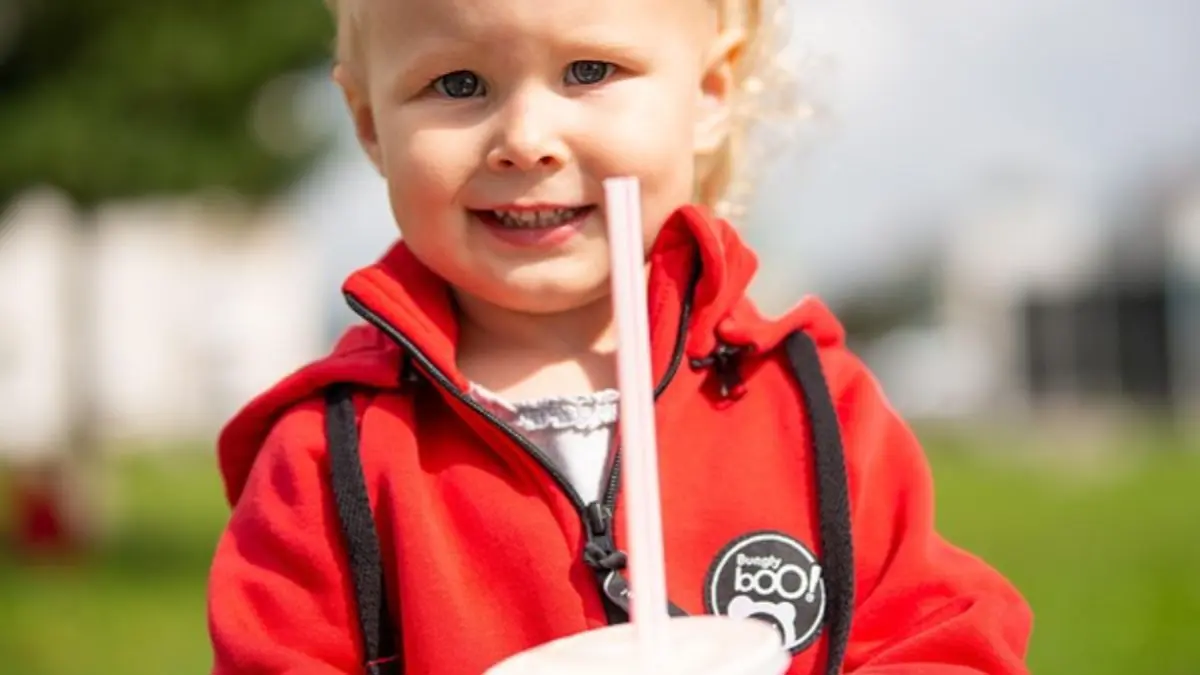Updated 8 April 2025 at 13:38 IST
Wellington School Bans Energy Drinks - Read About Its 5 Alarming Effects on Children
Saint Patrick's College, a Wellington school has banned energy drinks because of their high sugar and caffeine content. Check its 5 harmful effects on kids...
- Health News
- 4 min read

New Delhi: Saint Patrick's College, a school in Wellington has issued a notice on its official website, informing parents of a ban on energy drinks from the following term, because of its high sugar and caffeine content, which is not good for children.
The Wellington school's ban on energy drinks has once again highlighted, the many hazardous effects of energy drinks, especially on children…
Wellington School Bans Energy Drinks for Children
Saint Patrick's College, a Wellington school has banned the sale of energy drinks, for the children from the next term. While speaking to the local media, the school authorities said, “It’s just not part of the healthy diet. But more importantly, we need them to learn in the classroom when their mind and energy are fully functional, especially in the mornings, and that’s where part of the issue is.”
Advertisement
5 Harmful Effects of Energy Drinks for Kids
The American Academy of Pediatrics (AAP) has advised against energy drinks for children and adolescents, citing concerns over their high caffeine content. While energy drinks may offer a temporary boost in endurance, the American Academy of Child and Adolescent Psychiatry (AACAP) warns that caffeine can have lasting effects long after its initial impact. Additionally, the AACAP recommends that children aged 12 to 18 should limit their caffeine intake to no more than 100 milligrams per day and avoid energy drinks altogether.
Dr. Stephanie Green, a pediatric endocrinologist at Johns Hopkins Children’s Center, noted that while up to 400 milligrams of caffeine daily is generally considered safe for healthy adults, there is no established safe caffeine limit for children. As a result, the AAP advises limiting caffeine consumption for children.
Advertisement
Read about the 5 harmful effects of energy drinks on children, according to the AACAP…
- Disturbing Sleep Patterns: Sleep disturbances in children due to energy drinks are becoming a growing concern. These drinks typically contain high levels of caffeine, sugar, and other stimulants, which can disrupt a child’s natural sleep patterns. Caffeine, in particular, is a stimulant that can interfere with the body’s ability to fall asleep and stay asleep, leading to issues such as difficulty falling asleep, shorter sleep duration, and lower sleep quality. The effects are especially pronounced in children, as their developing bodies are more sensitive to these substances.
- Feeling Jittery: Children may experience feelings of jitteriness after consuming energy drinks due to the high caffeine and sugar content. Caffeine is a stimulant that can cause an increase in heart rate, heightened alertness, and restlessness, leading to a jittery or anxious feeling. The large quantities of sugar often found in energy drinks can further exacerbate these symptoms, leading to a spike in energy followed by a rapid crash. This combination can negatively affect a child's mood, concentration.
- Agitation: Energy drinks can cause agitation in children due to their high caffeine and stimulant content. Caffeine stimulates the central nervous system, leading to increased heart rate, heightened alertness, and a state of heightened excitement or restlessness. In children, who are more sensitive to these substances, even moderate amounts of caffeine can cause irritability, nervousness, or difficulty staying calm.
- Seizures: Energy drinks can pose a serious risk to children by potentially triggering seizures, particularly due to their high caffeine content. Caffeine is a powerful stimulant that affects the nervous system, and in excessive amounts, it can lower the seizure threshold, making it more likely for a seizure to occur. While seizures are rare, they can be more likely in children with underlying health conditions, such as epilepsy or other neurological disorders, making it crucial for parents and caregivers to monitor energy drink consumption carefully to avoid potentially dangerous outcomes.
- High Blood Pressure: Energy drinks can contribute to high blood pressure in children, primarily due to their high caffeine and stimulant content. Prolonged or excessive consumption of energy drinks can increase the risk of developing long-term cardiovascular issues, including sustained high blood pressure, rapid breathing, increased heart rate and anxiety attacks, which can negatively impact a child’s overall health and development. As such, health experts advise limiting or avoiding energy drinks in children to protect their heart health.
Published By : Ananya Srivastava
Published On: 8 April 2025 at 13:38 IST
